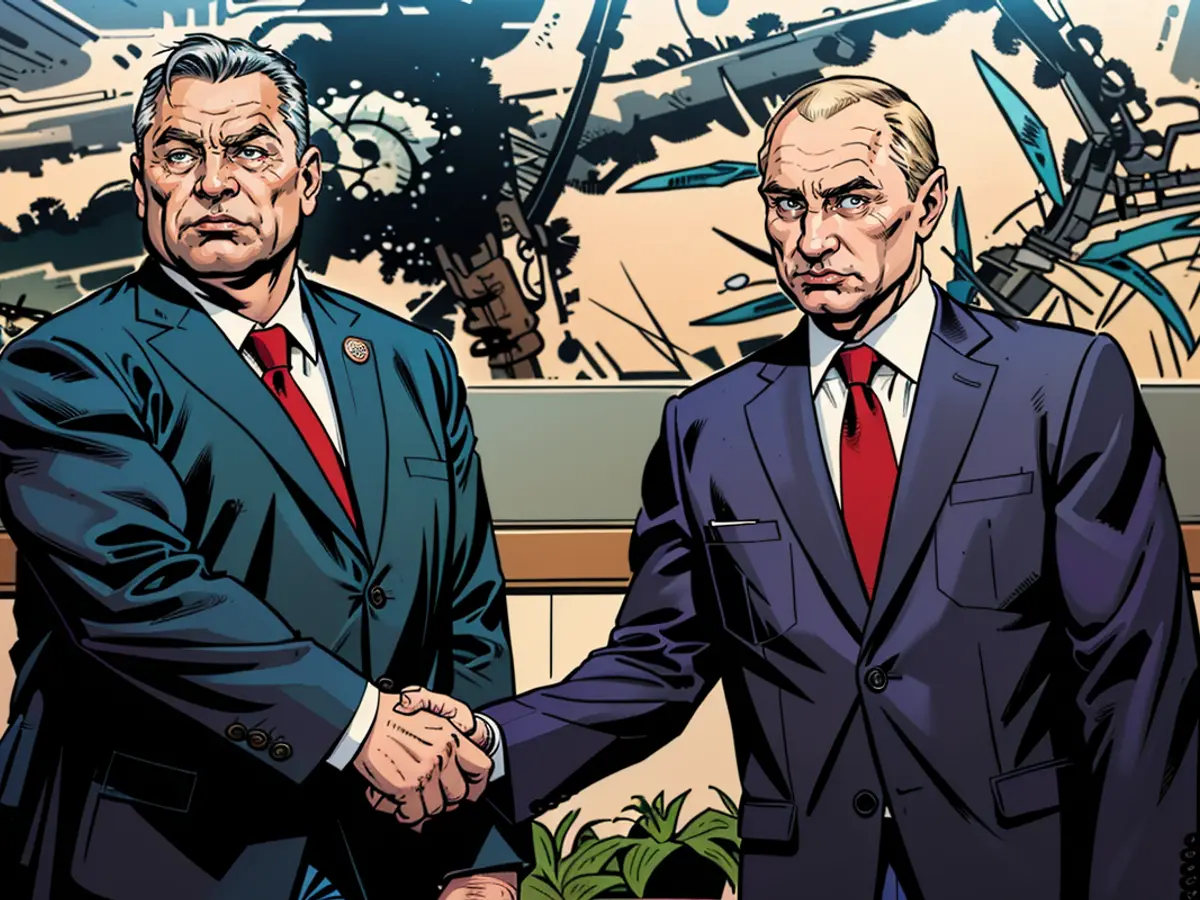Hungary's Prime Minister - Orban pays surprise visit to Putin - and speaks of "peace mission"
Hungary's right-wing Prime Minister Viktor Orban has arrived in Moscow for talks with Russian President Vladimir Putin. Orban's spokesperson Bertalan Havasi confirmed the planned meeting with Putin. Despite Russia's ongoing military conflict with Ukraine, Orban continues to maintain good relations with the Kremlin chief.
Orban staged the trip as a peace mission. "One cannot create peace from a comfortable chair in Brussels," Orban wrote before confirming his trip on the online platform X, prior to Brussels having a mandate to negotiate on behalf of the EU. "We cannot refuse and wait for the war to end miraculously. We will be an important instrument in making the first steps towards peace." Hungary took over the rotating EU presidency a few days ago.
From the EU itself came criticism. Orban has no mandate from Brussels for the journey, EU High Representative Josep Borrell declared. "The visit of Prime Minister Viktor Orban to Moscow takes place exclusively in the context of bilateral relations between Hungary and Russia," the EU foreign policy chief stated. The presidency does not see itself representing the Union externally.
Viktor Orban visits Kiev for the first time since the war began
Orban visited Kiev for the first time since the war began on Tuesday – a visit that was met with silence from Ukrainian President Volodymyr Zelenskyy. Orban urged Zelenskyy to consider a ceasefire to facilitate negotiations. Relations between Kiev and Budapest are tense due to Orban's delayed support for Ukraine and his efforts to prevent EU sanctions against Russia.
Hungary remains heavily dependent on Russian gas supplies, which partly flow through Ukraine despite the war. However, Kiev refuses to extend the contract for gas transit, which expires at the end of the year.
Publicly, Zelenskyy left Orban's proposal unanswered. Currently, there are no peace negotiations between Kiev and Moscow. Kiev has so far officially rejected a weapons truce before the withdrawal of Russian troops, but this condition was recently no longer emphasized.
Both sides reject a ceasefire without conditions
Putin also rejected a ceasefire without conditions shortly thereafter. "We cannot allow the enemy to use this ceasefire to improve their situation, arm themselves, mobilize their army, and be ready to continue the armed conflict," Putin said on the sidelines of the Shanghai Cooperation Organization (SCO) summit in the Kazakh capital Astana. The weapons could only fall silent when Ukraine takes irreversible steps towards de-escalation.
Russia has recently demanded the complete withdrawal of Ukrainian troops from the territories it claims in eastern and southern Ukraine – Cherson, Donetsk, Luhansk, and Zaporizhia – as a condition for negotiations. However, Russian troops have not been able to take control of Zaporizhia, and they had to withdraw from Cherson due to a Ukrainian counteroffensive in the fall of 2022. The Russian military only partially controls the territory of Donetsk.
Orban was in Moscow for the last time in September 2022, several months after the beginning of the Russian offensive war. At that time, he only attended the funeral of the former Soviet Party Chief and President Mikhail Gorbachev. Orban did not have direct contact with Putin at that time. The Russian leadership had sent former President Dmitry Medvedev for the event instead. However, Orban and Putin met in the past autumn at the Silk Road Summit in Beijing.
Viktor Orban's visit to Moscow for talks with Vladimir Putin came despite Ukraine's ongoing conflict with Russia, highlighting Hungary's complex relationship with both countries. Orban's visit to Kiev, the first since the war began, saw him urging President Zelenskyy for a ceasefire, demonstrating Orban's role in mediating between the two nations.








